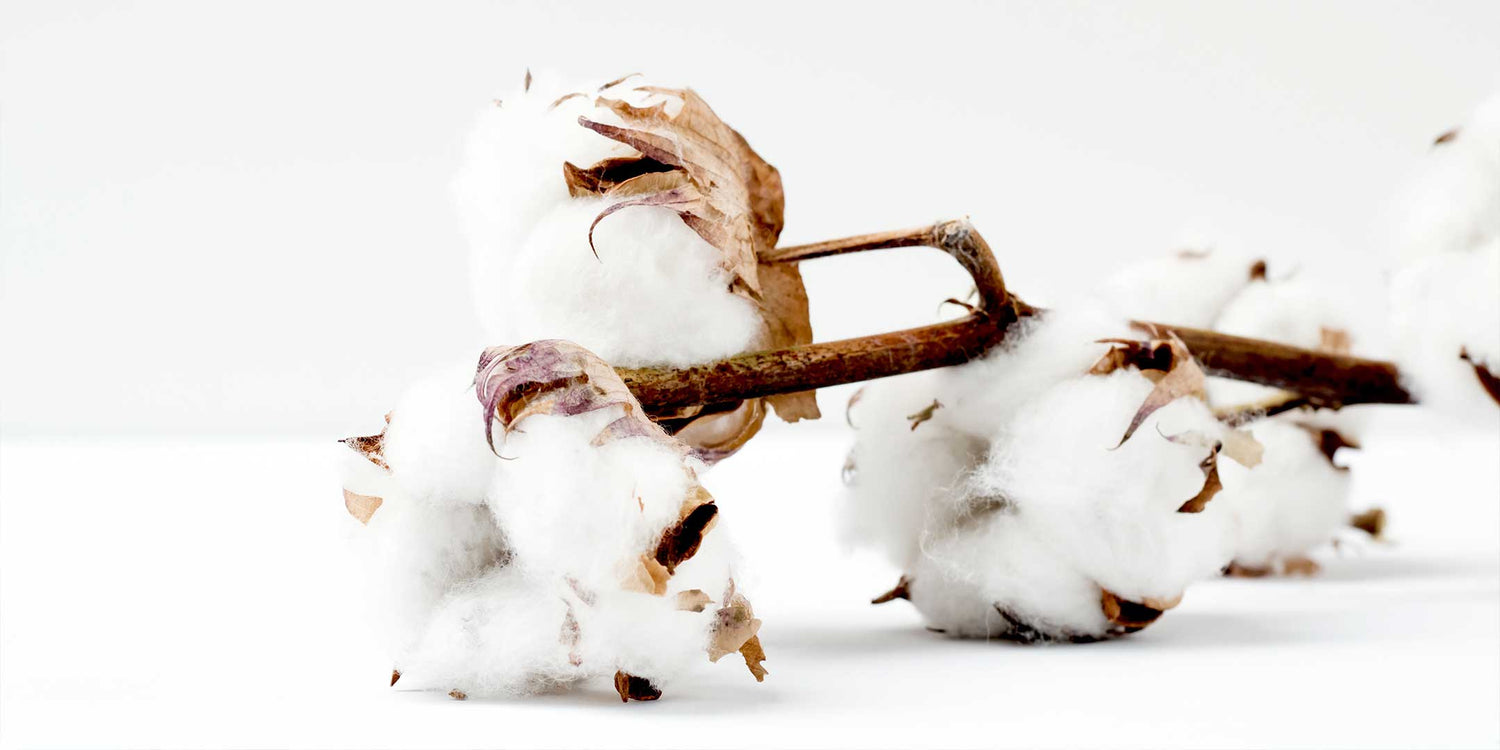Why should you buy organic cotton over conventional cotton? Is it worth the extra money?
If you consider the number of toxic chemicals sprayed over regular cotton during farming, the bleaching during the manufacturing process, and the itchiness when you put it on, then maybe it’s time to invest in organic.
What is organic cotton?
Organic cotton is cotton grown in a way that works with nature and not against it. Farmers grow cotton by combining “tradition, innovation, and science to benefit the environment, promoting fair relationships and improved quality of life for all.” Organic cotton promotes healthy soils, ecosystems, and people because it uses natural processes rather than external and possibly harmful practices.
Why should you care about organic cotton?
Organic cotton is grown without harmful chemicals. Second, organic cotton uses less water to grow than regular cotton. It’s better for sensitive skin and for the environment. Finally, organic cotton is more durable.
Here are five reasons to ditch regular cotton and start investing in organic.
Reason 1: Organic cotton is grown without harmful chemicals
The Environmental Justice Foundation and the Pesticide Action Network published a report that showed the production of cotton uses $2 billion of pesticides yearly. It also uses 16% of global insecticides, outnumbering every other crop. The report stated that cotton is the world’s “dirtiest agriculture commodity.”
Water Footprint Network conducted an assessment of the water footprint of agricultural practices in India and found that regular cotton production causes fives times more water pollution than organic farming. This is mainly because of their use of pesticides in farming, which strains local water resources. Not only do pesticides put pressure on local water resources, but they contaminate the soil and air when these farmers spray chemicals on an extensive scale.
Organic cotton, on the other hand, produces about 46% less CO2 compared to regular cotton. Further, organic farmers can’t use any synthetic inputs, which means unless their fertilizers, pesticides, herbicides, insecticides, or fungicides are naturally derived, they can’t use them. Instead, organic farming uses crop rotation, compost, and biological pest control to harvest crops.
While there are a lot of conventional farmers who use safe agricultural practices like using fewer chemicals and water, they’re not certified or verified as being sustainable. To become certified, farms have to practice strict organic practices for two to three years before they’re eligible for organic status.
Reason 2: Organic cotton uses less water to grow vs. regular cotton

It takes 22,500 liters of water to produce 1kg of cotton in India. Take a normal cotton t-shirt. It takes roughly 2,168 gallons of water to produce it. Compare that to an organic cotton t-shirt which only takes 186 gallons of water. This is a difference of 1,982 gallons.
Similarly, it takes 9,910 gallons of water to produce a pair of jeans, whereas, it takes 932 gallons of water to create an organic pair of jeans. That saves you 8,978 gallons.
Water is a finite resource and cotton consumption uses 2.6% of global water. Because organic cotton uses far less water to grow and produce goods, it helps us save water.
Reason 3: It’s better for sensitive skin

Have you ever put on conventional cotton clothing and got crazy itchy skin or your skin broke out? That’s probably because there are chemicals infused in it. Chemicals used to produce regular cotton can cause several issues for us: headaches, dizziness, and rashes are just some of them.
Cotton is a great material. It’s breathable in hot weather, and it helps repel dust mites and pollen. Plus, it’s biodegradable and durable.
Organic cotton is all that and more. It’s hypoallergenic, soft, durable, and won’t irritate your skin. Plus, it lasts longer. Because organic cotton isn’t processed with toxic chemicals, it’s the perfect alternative for people with sensitive skin or who want to avoid toxins
Reason 4: It’s better for the environment

We probably don’t have to tell you this, but organic cotton is better for the environment. According to Textile Exchange, organic cotton emits 46% fewer greenhouse gases than conventional cotton. This is because organic cotton farming doesn’t use nitrous dioxide-releasing fertilizers and pesticides. They also use less mechanized farming practices.
Instead of using fertilizers, organic cotton farmers use red clover and alfalfa to feed the cotton, which actually reduces nitrogen. They also use green manures which are fast-growing plants that “limit the growth of weeds, provide cover for bare soils, and improve soil structure and nutrient quality.” Due to being fertilizer- and pesticide-free, organic cotton soil acts like a “carbon sink” by absorbing CO2 from the atmosphere.
Not only does organic cotton production emit fewer greenhouse gases and it’s better for the soil, but it also uses 91% less blue water (fresh surface and groundwater), and 62% less primary energy.
Reason 5: Organic cotton is more durable
Our fifth reason to ditch regular cotton and invest in organic cotton is that it’s more durable.
The hand-picking method of organic cotton preserves the length of the fibers, unlike conventional cotton production. This keeps them intact and thus, stronger. Regular cotton fibers can get damaged by the chemicals used in farming or weakened or broken by machine harvesters.
In fiber classification, longer lengths make fibers uniform, strong, and give them more luster than conventional cotton. Because their fiber lengths are longer, they end up being softer, more durable, and of better quality.
Conventional cotton is also usually bleached and treated with toxic chemicals during the manufacturing process which weakens the fibers. Organic cotton isn’t. It stays durable because of this too.
Water Footprint Network said that around 90% of cotton grown is still conventionally farmed. This means that there’s still an enormous demand for conventional cotton. This will continue to contribute to environmental degradation.
Next time you shop for a new cotton top, pants, or even underwear, consider investing in organic. You’ll help the environment and protect your health in the process.







